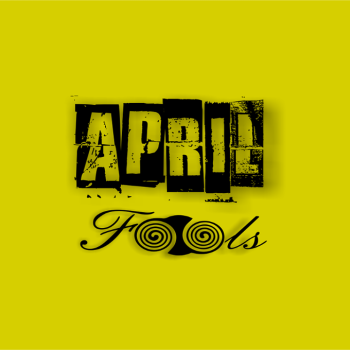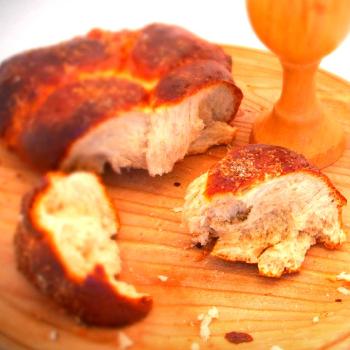It's six forty in the morning here in Hawarden, Wales, and I am hoping that everyone I love back home in the States is asleep. (It turns out my friend Chris Seay, recuperating from surgery, is just now posting on Facebook that he's awake. And he wants lobster.) I have passed the ruins of a 12th-century castle, and am puffing up a hill in the Bilberry Woods on the Gladstone estate—yes, the William Gladstone family, he of Parliament and prime ministerial fame, and of the Gladstone Library, where I am again staying and working.
The air is cool and humid, so thick I imagine you should pour it rather than breathe it. As I run, I am listening to Thompson Square, a country group Jeanie and I began listening to together.
I am thinking about her, about the kids, about home.
And I am puffing up a hill.
In a moment, I will turn left, down an avenue of overhanging trees, and see the early morning sunlight pouring in as if through a window. After I emerge, I will run a half-mile down a farm lane, past hedgerows and brown and white cows. I will flush a rabbit out of hiding, chase him down the road, turn around and head back into the forest.
On the way back down the hill to Broughton Brook, I will follow an uneven trail alongside a stone wall older than my country, pick through the mud as I run past a ruined mill as old as my country. I will sprint up the steep path out of the forest, take the last couple of stairs into a parking area, bend over and inhale for dear life.
Then I will stop at the Hawarden Post Office, where the owners, Keith and Gaye, are getting ready for the day, chat with them a bit, buy a Diet Coke.
After I finish my workout out by the enormous bronze statue of Mr. Gladstone on the front lawn, I take a seat on a bench, smile, take a deep breath.
I am back at the Library.
What do you do there?
This is the question I get from lots of people. Why would you go and stay for weeks at a library in Wales? What do you do there?
The simple answer is, I write.
A corollary question people also tend to ask me, sometimes the same people in the same conversation is, How do you get so many things written?
Putting aside the wonder in their voices—as though writing is somehow a markedly different thing than installing cable or solving equations—the simple answer is, I work. Hard.
And by going away to write, I gain the incredible and costly gift of focus.
I came to Gladstone's because I had heard it is a great place to write.
But I keep coming back because not only do I write well here, it is a place I have grown to love as a second home.
After my run, after my shower, I go to Eucharist. Gladstone was a devout Anglican, and his bequest stipulated that the Library's Warden should always be clergy in the Church of England. The present Warden, the Rev. Peter Francis, is officiating this morning. As he stands behind the altar in the chapel, he speaks familiar and beautiful words from the Welsh Book of Prayer, but Peter's own nuances—the way he pronounces the absolution before the confession, explaining that in the gospels, forgiveness precedes repentance; his use of the very Celtic phrase "Jesus, our brother and companion on the way"; his benediction drawn from Micah 6:8 ("He has told you, O mortal, what is good; and what does the LORD require of you but to do justice, and to love kindness, and to walk humbly with your God?")—have also become liturgy for me. Like all good liturgy, these familiar words comfort and inspire me.
After Eucharist, I feel I am ready for my day.
Before I go to work in the Library stacks, though, I have breakfast in the dining room. Jenny, who serves us during the week, asks—as she asks me every morning—"D'you want porridge, luv?" I do not love porridge—I just want to answer Jenny in the affirmative. I get oatmeal, juice, tea, toast. On the weekend, it's a full Welsh breakfast, but there's no point getting ahead of myself. This is good; I spread butter and local blackberry jelly on my toast, sip my tea.
On this morning, I am at a table with Rob, a professor and priest whom I know from last year, and two new friends from Canada. In the past I have sat at breakfast and dinner with scholars and writers and tourists and schoolboys and Library staff. Once I had breakfast with the Catholic Bishop of Dublin. Once I had dinner with the great spiritual writer Esther de Waal. Someone interesting is always here, one greeting away from acquaintance.
Shortly after nine, I make my way to the library wing and up the narrow spiral staircase to my desk, which is stacked with books and notebooks. This visit, I am working on a nonfiction book for Oxford University Press on how the afterlife is represented in literature and culture. On my desk are books on angels and demons, novels, my Kindle full of writing by Augustine, Aquinas, and Calvin, a copy of Paradise Lost. At my right hand are pictures of my son Chandler, of my soon-to-be daughters Lily and Sophie, of my intended, Jeanie—the people I leave behind and miss every moment.





